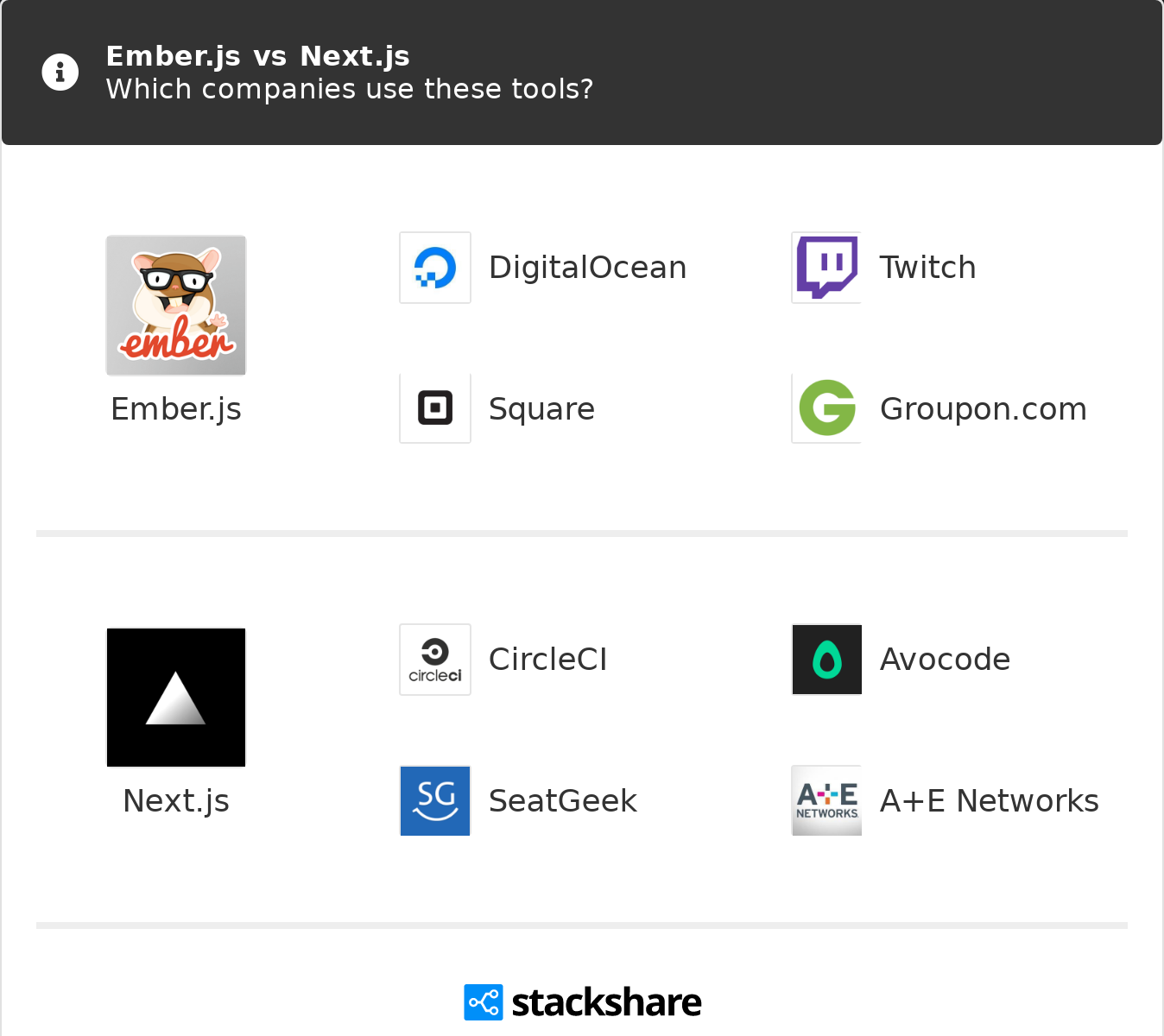Ember vs. Next.js: Choosing the Right Framework
by Devonte Emokpae, Founder / CTO

Ember: The Established Workhorse
Ember has a long history in the web development world and has powered many successful applications. Let's delve into its strengths and advantages:
Key Advantages of Ember:
-
Opinionated Structure: Ember follows a strict, opinionated structure that can help developers quickly get started and maintain consistency throughout a project.
-
Built-in Conventions: Ember enforces coding conventions, making it easier for teams to collaborate and follow best practices.
-
Stability and Maturity: With a strong focus on stability, Ember is a solid choice for long-term projects and enterprise-level applications.
-
Rich Ecosystem: Ember has a mature ecosystem with a wide range of addons and libraries to extend functionality.

Next.js: The Modern React Framework
Next.js has gained popularity for modern web development. Let's explore its strengths and what sets it apart:
Key Advantages of Next.js:
-
Server-Side Rendering (SSR): Next.js excels in SSR, delivering faster initial load times and improved SEO, thanks to its built-in support for server-side rendering.
-
Automatic Code Splitting: Next.js automatically splits JavaScript bundles, optimizing performance by loading only the necessary code for each page.
-
SEO-Friendly: It simplifies SEO with server-rendered pages, structured metadata, and canonical URLs out of the box, enhancing search engine rankings.
-
Developer Experience: Next.js offers a fantastic developer experience with features like hot module reloading, error reporting, and an intuitive file-based routing system.
Choosing the Right Framework
Ember: When to Consider
- Consider Ember if you prefer a strong opinionated structure and coding conventions.
- Ember is a good choice for large, long-term projects where stability and maturity are critical.
- It's well-suited for teams looking for a framework with a rich ecosystem and addons.
Next.js: When to Consider
- Choose Next.js if you need server-side rendering for faster load times and improved SEO.
- Next.js shines for modern web applications, especially those requiring automatic code splitting.
- It's an excellent choice for developers who value a superior developer experience.
The Verdict
In the Ember vs. Next.js showdown, the right choice depends on your project's requirements and your development preferences. Ember's stability and structured approach make it ideal for certain scenarios, while Next.js' modern features and exceptional performance cater to a different set of needs.
Ultimately, the choice between Ember and Next.js should align with your project's goals and your team's expertise. Both frameworks have their strengths, and making the right decision is key to a successful web development journey.
